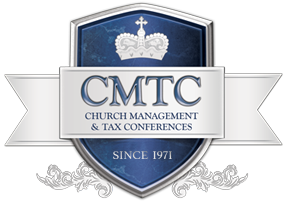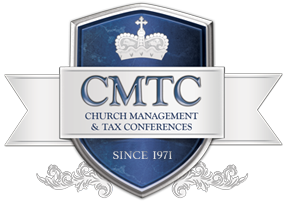Just Because the IRS Told You, Doesn’t Mean It Is Correct
At our Clergy Tax Conferences all across America, I am often confronted with people who say the information they have received from the Internal Revenue Service (via phone, or internet search) is contrary to the actual Internal Revenue Code that is read aloud in the classroom. This triggers a few issues that should be addressed.
- Sincere, but Inaccurate
With more than 19,000 pages in the Internal Revenue Code, is it possible for one IRS agent to know, in detail, all of the thousands of IRS code sections, and subsections? I doubt it. One agent may speak to a taxpayer with all sincerity, but if that agent does not thoroughly know the IRS code, he or she could be providing sincere, yet inaccurate information to the Pastor or Church Treasurer.
While researching legalities in a New England state, I processed through 5 different Government employees, each providing a different answer to my question, before I connected to one who not only gave me the correct answer, but provided the code section of the law (which I looked at during the conversation) to support his answer.
Many of the IRS agents are not properly trained to answer simplistic questions, and especially the complex issues involving Church/Ministry.
- Intentional Inaccuracy
Based upon information provided by an unnamed agent, the pressure upon agents to “close the deal” drives them to “push the envelope.” The pushing of the envelope may cross the accuracy line and force an intentional inaccuracy.
- Any Erroneous Advice Administered by the IRS is not Binding
According the case of “Maser v. Commissioner,” (2011) the court ruled as follows:
The law is clear that erroneous legal advice rendered by employees of the IRS generally is not binding on the Commissioner. Dixon v. United States, 381 U.S. 68, 72-73 (1965); Schuster v. Commissioner, 312 F.2d 311 (9th Cir. 1962), affg. in part and revg. in part 32 T.C. 998 and 32 T.C. 1017 (1959); Fortugno v. Commissioner, 41 T.C. 316 (1963), affd. 353 F.2d 429 (3d Cir. 1965). In any event, the Commissioner cannot waive the jurisdictional requirements, and jurisdiction cannot be established by estoppel.
Whether the information provided by the agent is “sincere, but inaccurate,” or “intentional inaccuracy,” the bottom line is, “What does this mean for the Church, the Pastor, Trustees, and Board Members?
It does not matter who tells you that you do not have to meet certain guidelines. If the code is not provided that properly defines the answer, you will be held accountable to the law as it is written – not as it was explained to you by the agent.
In essence, if the IRS agent lies to you, intentionally (which would be difficult to prove in a court of law) or otherwise, the Church, Pastor, Trustees, Board Members, and all responsible parties, will be held liable to the written code.
Why You Need our Expertise
Before you trust the fate of your Church into the hands of any CPA or Attorney, you must ensure that CPA or Attorney you have chosen, is an expert in Church Tax Law.
Chitwood and Chitwood is the Ultimate Authority on tax laws that apply to Churches and Ministers. To register for one of our Conferences, to hear the real truth as to what is and is not required by the IRS for Churches and Ministers, visit us at www.cmtc.org or call 800-344-0076. Remember, “If you don’t know Church Law, you can’t do Church books.

